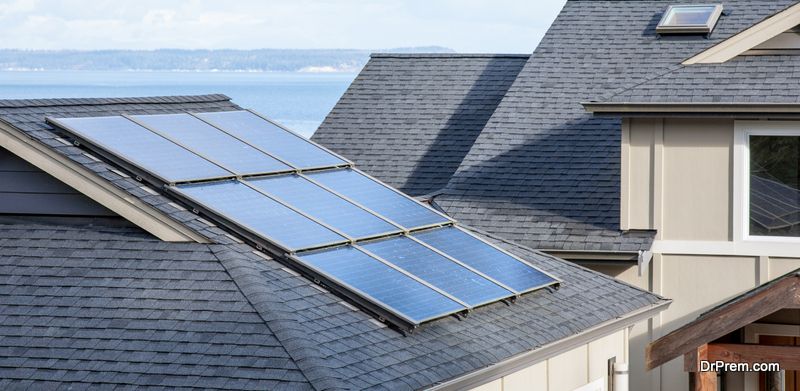Does your abode embody energy efficiency? Amidst a time when concerns about climate change and mounting energy expenses take center stage, the appeal of renewable energy sources has grown immensely. The leap in technological advances positions solar power as an impactful choice for homeowners striving to embrace an eco-friendly approach and cost-effectiveness regarding their power consumption.
Financial Considerations
The decision to equip your home with solar panels involves considering its financial pros and cons. It is crucial to bear in mind the initial expenditure required for the installation, which can oscillate greatly based on geographic location, system size requirements, and the most optimal panel type.
However, once mounted, these sun-powered devices pave the way towards extensive potential savings over the years. For instance, Smart Solar Energy in Medford OR offers insights on beneficial tax credits and high-quality installations that guarantee optimal savings.
Exploring Different Panel Options
Solar panels are versatile with varied options available that cater to diverse needs while differing substantially in aspects of efficiency, cost, and visual appeal. Revealing three primary kinds: monocrystalline and polycrystalline solar panels, along with thin-film solar panels.
1. Monocrystalline Solar Panels
Monocrystalline solar panels stand as the priciest, but incredibly efficient selection. These elegant black plates are composed of single-crystal structure cells permitting electrons – brought into existence by captured light – to travel freely, thus providing high-level productivity.
2. Polycrystalline Solar Panels
Presenting a more budget-friendly option without compromising too much on effectiveness are polycrystalline solar panels. Their distinctive blue appeal is due to their multi-crystal silicon structure cells that while being slightly below monocrystalline panels in efficiency remain a good contender.
3. Thin-Film Solar Panels
Lastly, thin-film solar panels compete in this field. What they might lack in efficiency levels is compensated for by their superb affordability and adaptability; they are designed so they can be rolled up! A good match if you possess an ample amount of space and moderate power needs.
Demystifying Solar Panel Functionality
At face value, the workings of solar panels might seem intricate, but the science behind it is quite straightforward. Solar panels latch on to sunlight using their photovoltaic cells which in turn transforms the garnered solar energy into direct current (DC) electrical power.
An inverter then steps into converting this DC electricity to alternating current (AC), making it ready for use in your residences for various electronic utilities and gadgets. When executed flawlessly, the entire operation proves to be impressively smooth and effective.
Environmental Impact
One cannot overlook the environmental benefits of solar panels. The acquisition of solar panels for your home drastically reduces your carbon footprint by offsetting emissions from traditional power sources to virtually zero when sufficient solar energy is produced. While it may seem insignificant for a single household, if adopted on a larger scale collectively we could substantially curb our destructive habits towards Mother Earth.
Evaluating Your Location
Before deciding on getting those shiny new solar panels for your home, you need to evaluate your location first. Not all places are optimal for harnessing solar energy. Factors such as geographic location, climate patterns, and specific weather conditions including cloud coverage will affect how efficiently your solar panels function.
Some regions suit building rainwater harvesting systems while others are perfect for wind turbines. Be sure each day brings ample sunlight lasting several hours; without that sun kiss you won’t be able to produce enough power.
Efficiency and Performance
Positioning is another crucial determinant of the overall efficiency and performance of your solar panels. The direction of their orientation relative to sunlight significantly impacts their performance output.
Always ensure unobstructed access to sunlight for the panels. Be mindful of potential physical obstacles such as tall trees or structures that could obstruct sunlight. Remember, continuous maintenance is key for maximum output.
Incentives and Policies
Governments worldwide are encouraging homeowners to switch to renewable energy sources like solar power by offering generous incentives. The EPA has launched a $7 billion competition to bring affordable solar energy.
It would be wise to acquaint yourself with local policies concerning solar installations in your area, as well as federal incentives that have been put in place to encourage solar power usage such as tax benefits.
Choosing an Installation Company
When it comes to picking an installation company, put a premium on reputation before anything else. Conduct comprehensive research into different companies operating in your region before you make a decision. Always remember the cost of installation is secondary to the quality of installation.
Longevity and Durability
Generally, solar panels have a long life with most manufacturers offering 25 years of warranty but that’s not where it ends! They can last much longer with proper care and maintenance. Durability is also rarely an issue with most quality panels capable of resisting harsh weather conditions including hailstorms and high winds.
Summary
The wisdom of converting your home into a haven for solar power is heavily dependent upon individual circumstances such as location, finances, and personal preference. It’s indisputable that despite the hefty upfront costs, the long-term savings coupled with environmental benefits create a compelling argument in favor of this renewable energy source.
Article Submitted By Community Writer




